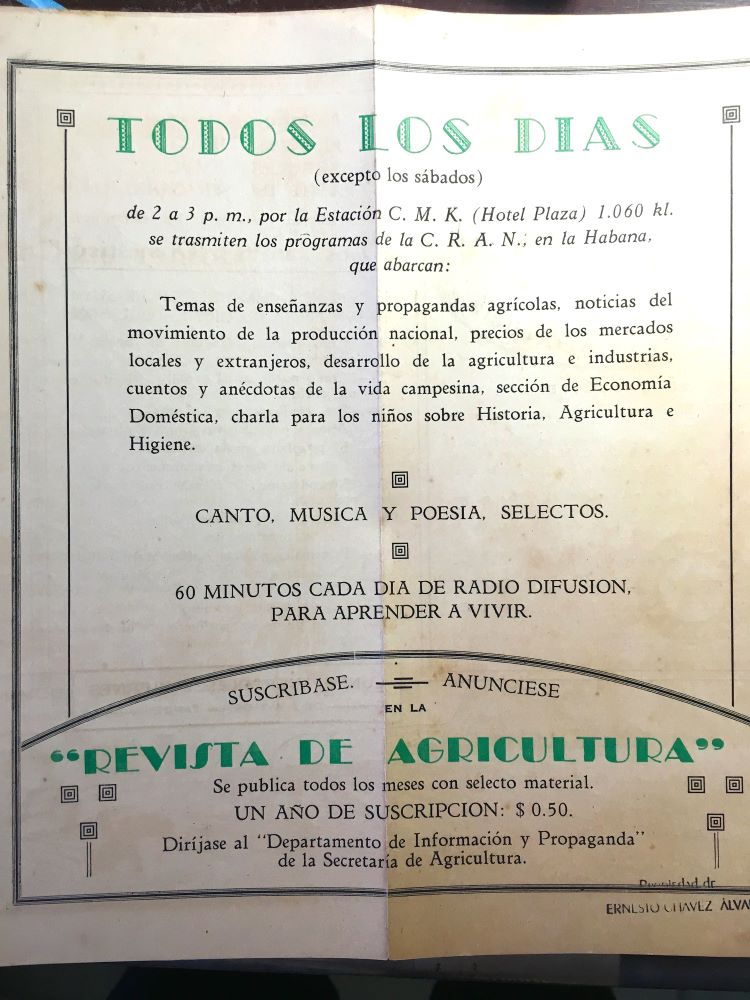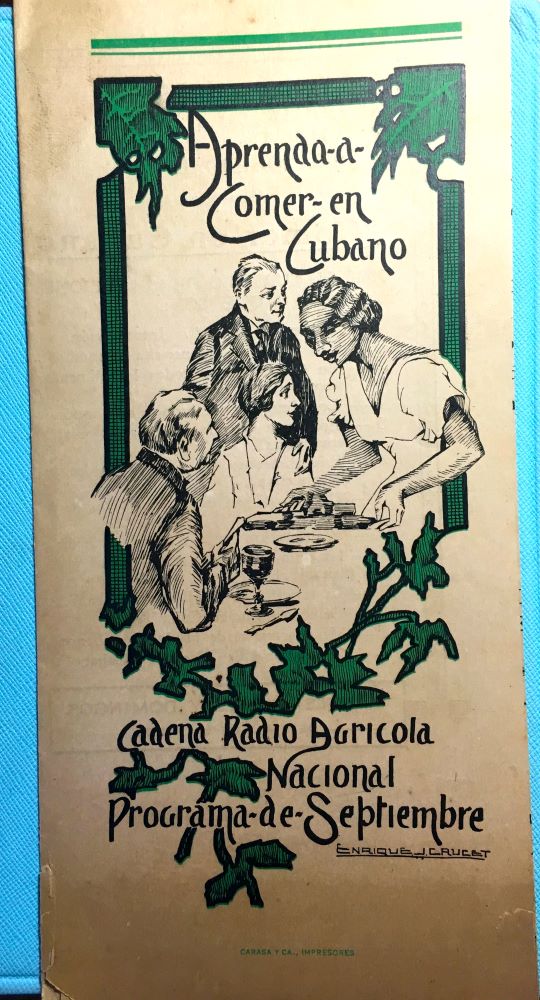Aprender a comer en cubano was literally the name of a daily, national public radio program sponsored in the 1940s by the first elected government of the Auténtico Party. Its leaders claimed to represent the “authentic” program of Cuba’s 1895 War for Independence. The least fulfilled goal of this war and the Republic it founded was the establishment of a prosperous small farmers’ economy. Thanks to US military interventions and the advantages they gave to rich planters and foreign investors, massive sugar plantations returned to dominate the landscape and control state policies. A generalized urban disdain for the uneducated, impoverished countryside also permeated society. The Auténticos aimed to subvert those values and instill national pride through knowledge of Cuban cuisine, agriculture, and peasant life. Many leaders considered this a first step toward finally implementing the 1940 Constitution’s mandate for agrarian reform. Thus, the drawing on the radio program’s brochure showing a nonwhite woman serving well-to-do whites was meant to appeal to critics and distract attention from program backers’ real goal—the breakup of huge rural estates. While that goal was never achieved by a pro-capitalist, elected government, it shows that this did succeed in building a wide consensus for government transparency, a sense of responsibility for social injustices, and an end to officials’ impunity. Arguably, General Fulgencio Batista’s 1952 coup and then Fidel Castro’s communist transformation of Cuba’s 1959 Revolution together manipulated and then subverted these aims. Ernesto Chávez Collection, University of Florida.


